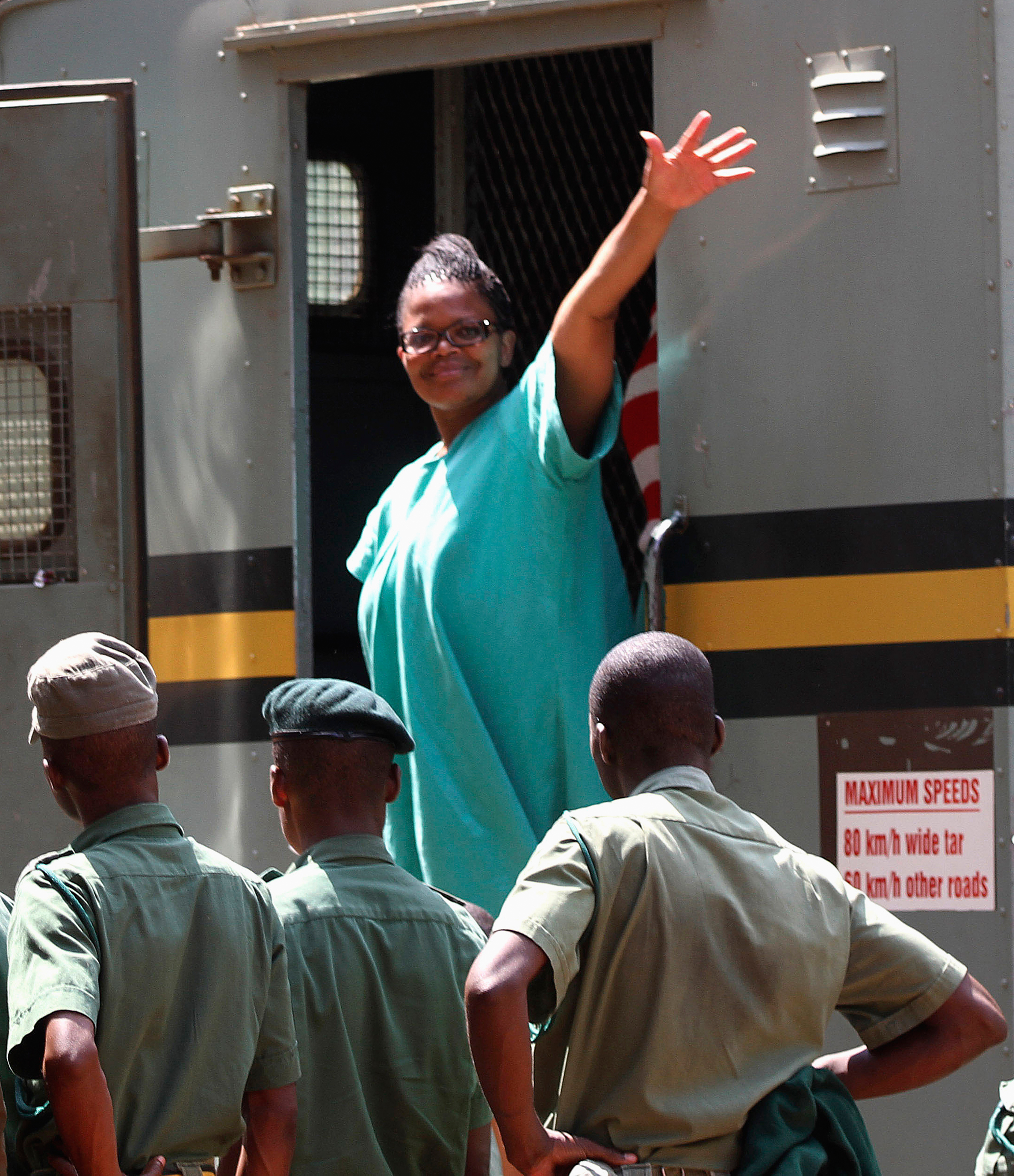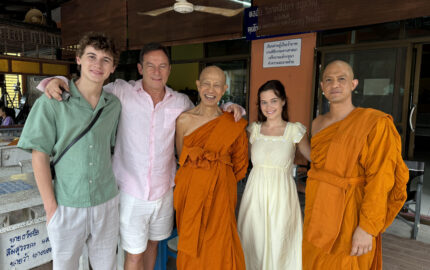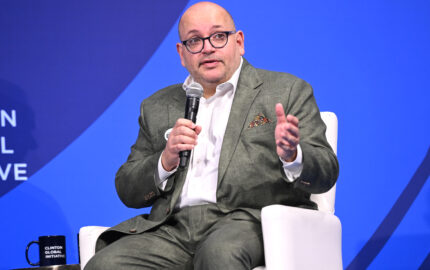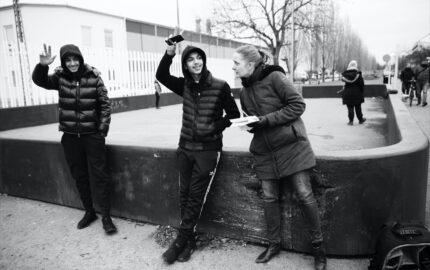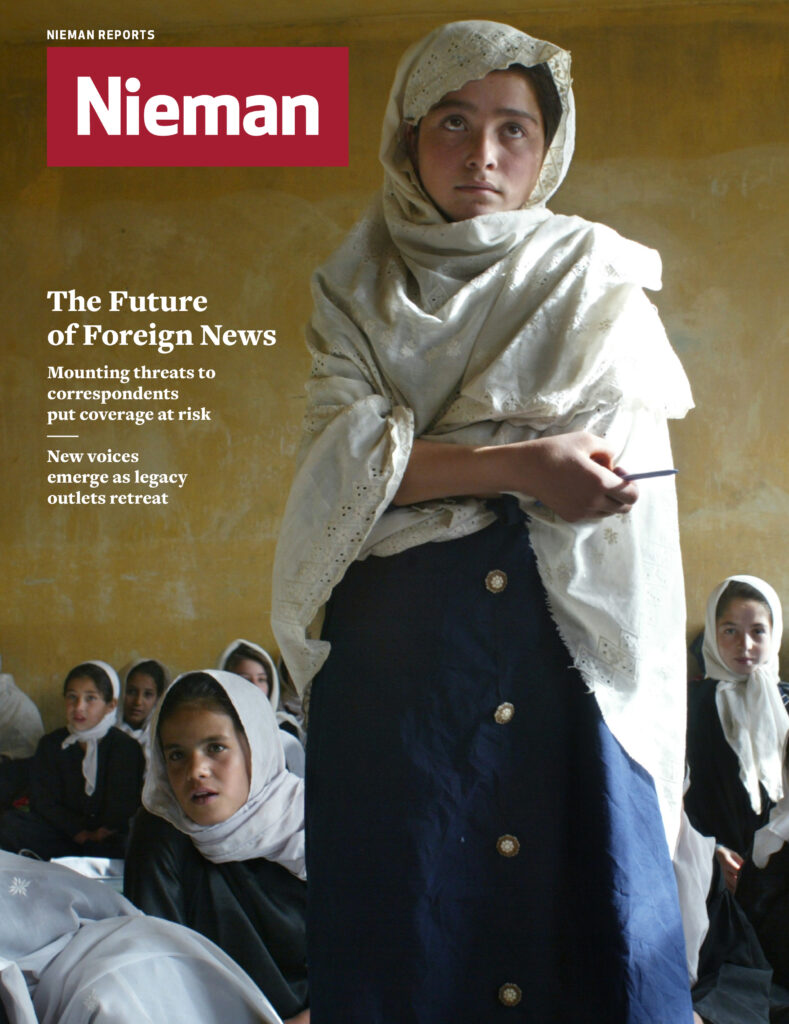
A film about Beatrice Mtetwa, the internationally known, hard-charging human rights lawyer in Zimbabwe, was a natural.
What was fortuitous is that it took root in Lippmann House. I co-produced the documentary “Beatrice Mtetwa and the Rule of Law” with Hopewell Rugoho-Chin’ono, NF ’10. Andrew Meldrum, NF ’08, is featured in the film.
“She’s the bravest person I’ve ever met,” is how Andy first described Beatrice. And he should know. According to him, he had been the sole remaining Western foreign correspondent reporting from Zimbabwe when the Mugabe regime put him on trial. Beatrice shredded the government’s case in the courtroom, leading to his acquittal. Yet the regime deported him.
While Andy was at the Nieman Foundation, we became friends. Our initial plan was to build a film around his memoir, “Where We Have Hope,” but we decided that a white journalist’s time in Zimbabwe was not the optimal vehicle.
“How can one better tell the story of a collapsing country?” we asked. After many meetings, it was my husband Tom Patterson, a professor at the Kennedy School, who suggested the prism in which to frame the film—the rule of law. Beatrice was logically the main character. But would she agree?
Within days of Andy sending Beatrice an e-mail, she signed on to a film centering on her efforts at “upholding the law in a lawless land.” Two years and many grant proposals later, I had raised barely enough money through grants from the U.S. Institute of Peace, the International Bar Association, Brit Doc, and small donations to support the production. We filmed Beatrice and some of her defendants in Zimbabwe and traveled to Swaziland where Beatrice grew up.
Beatrice is an ideal protagonist for a film—she’s courageous, smart, and strategic. But what I also learned is that Beatrice is very human. In spite of beatings by state police and an arrest and imprisonment last year—she was acquitted of all charges—Beatrice strives for normalcy. She’s a loving mother to two adult children, as well as to the children of her partner of 17 years. She’s an inveterate shopper of shoes and cooks up a mean curry. She loves to dance.
Beatrice is an ideal protagonist for a film—she’s courageous, smart, and strategic
Beatrice’s back story is fascinating. She was born and raised “with many mothers and at least 50 brothers and sisters.” Her father was a polygamist with six wives. Beatrice was his eldest daughter. There was never enough money, so Beatrice was fighting for food and clothing for her siblings long before she entered law school.
Screenings and broadcasts of the film have taken place in dozens of places, including Harare, The Hague, London, Washington, D.C., and in Amnesty International chapters around the world. U.S. distribution of the film is through KCETLINK. Over 5,000 DVDs of the half-hour version of the film have been distributed to schools and community groups in Africa.
Our hope in making the film is that it would inspire viewers everywhere, which affected our choice of the film’s ending. In the final clip, Beatrice is asked why she does it, why she risks her safety to stand up for the rule of law. She replies: “This has to be done. Somebody’s got to do it. Why shouldn’t it be you?”
